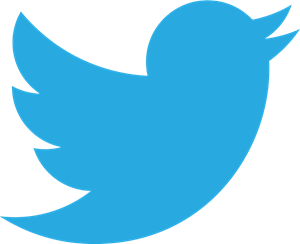Gold has all the potential to go unprecedentedly high. But silver will be gold on
Site:
Precious metals news
You asked. Ron Paul answered! We hope you enjoy the latest edition of Ask Ron Paul!
Aug 31, 2022 - 08:52:03 PDT
Towards the end of July, news emerged in the Russian media that Moscow and a number of its Eurasian allies are now reviewing a proposal to create an entirely new trading and pricing infrastructure..
Dominic Frisby reports that over the past two weeks two professional groups in the United Kingdom have emerged as top buyers of gold and silver: doctors and investment bankers. The investment bankers, as indicated above, are worried about systemic risks – the sequel to the Great Financial Crisis.
And the 91.67% pure, one ounce Zimbabwean gold coins are currently going for about $1,830 USD. As of early August, about 4,500 had been sold to be used for local trade, which means they’re circulating as a legal currency in the Zimbabwean economy. That makes these gold coins the most stable currency in the world.
The late 1980’s experienced what was back then considered a housing bubble, though it was much smaller in scale than the two housing bubbles this century. But here’s the kicker..
Aug 31, 2022 - 08:29:36 PDT
Mortgage application volume dropped and remained at a multi-decade low last week (back to 1997), led by an 8 percent decline in refinance applications, which now make up only 30 percent of all applications. Purchase applications have declined in eight of the last nine weeks, as demand continues to shrink due to higher rates and a weaker economic outlook.
The U.S. Federal Reserve plans to launch its instant payments platform FedNow between May and July of 2023. CoinDesk Global Policy & Regulation Managing Editor Nikhilesh De discusses the details.
Forget about a soft landing. Federal Reserve Chair Jerome Powell is now aiming for something much more painful for the economy to put an end to elevated inflation. The trouble is, even that may not be enough.
Euro zone inflation jumped to another record high and will soon hit double-digit territory, heralding a string of big interest rate hikes even as a painful recession appears increasingly certain.
China extended its fight against the yuan’s weakness with a stronger-than-expected currency fixing for the sixth straight day.
China's factory activity extended declines in August as new COVID infections, the worst heatwaves in decades and an embattled property sector weighed on production, suggesting the economy will struggle to sustain momentum.
Bank of Japan board member Junko Nakagawa on Wednesday warned of risks to the country's fragile economy such as the chance of rising living costs hurting household spending, highlighting the need to keep monetary policy ultra-loose for the time being.
The dollar is on the cusp of its third straight month of gains after reaching a 20-year high against peers, in a stark reflection of diverging outlooks for interest rates and growth in the world’s largest economies.
Turkey's annual inflation is expected to exceed 81% in August after the central bank delivered an unexpected rate cut despite continuing price pressures, a Reuters poll showed on Wednesday, and it was seen declining to just below 71% by end-2022.
U.K. inflation could soar above 22% next year if energy prices continue their upward spiral, U.S. investment bank Goldman Sachs has warned.
 Inflation in the Netherlands for August reaches 13.6%. In July it was 11.6%
Inflation in the Netherlands for August reaches 13.6%. In July it was 11.6%Aug 31, 2022 - 06:12:50 PDT
Fruit, meat, vegetables prices will go up by 50% because of cooling costs (gas).
 Euro Zone Inflation Hits Another Record of 9.1% As Food and Energy Prices Soar
Euro Zone Inflation Hits Another Record of 9.1% As Food and Energy Prices SoarAug 31, 2022 - 06:09:53 PDT
Euro zone inflation hit a new record high in August of 9.1%, according to flash figures from Europe’s statistics office Eurostat, with high energy prices the main driving force.
Although US monetary policy was too aggressive for too long, the likely culprit behind the recent surge in consumer prices was an extraordinarily expansionary fiscal policy. After all, the Great Recession was also met with an aggressive monetary-policy response, but inflation barely budged for a decade.
U.S. President Joe Biden's public approval rating fell modestly this week, a poor sign for his Democratic Party's hopes in the Nov. 8 midterm elections, according to a Reuters/Ipsos opinion poll completed on Tuesday.






















